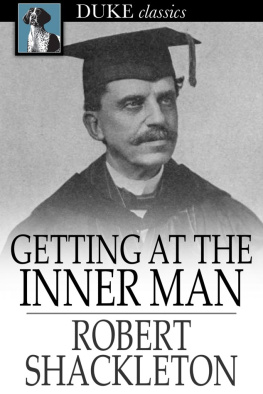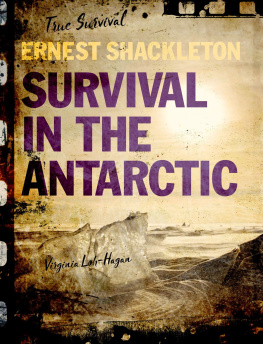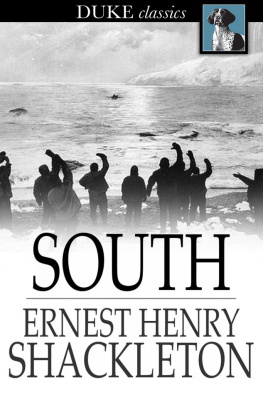Chapter I - This is Chicago!
THIS is Chicago! The city looks out upon Lake Michigan from a stretch of unbroken flatness. Her morning face shines brightly in the sun.
This is Chicago! An audacious city that audaciously set herself in a swamp: but the swamp long ago was obliterated and only the audacity remains. A city of dreams and with the practical ability to make the dreams come true. A city of energy and strength; of immensity of strength. It was long ago written that a city set upon a hill cannot be hid; yet here upon a plain is a city that cannot be hid.
An interesting city, yet with great areas of the unattractive. An extraordinary city, yet with much that is extraordinarily ordinary. An amusing city, yet with a great deal of dullness. An admirable city, yet in many respects unadmirable in the extreme. A beautiful city in long and glorious stretches, yet in its massing of miseries a terrible city. A gay yet sober city. A bright dull city. A happy unhappy city. A light-hearted, buoyant, vivacious, debonair city, a city with an air! in fact, in another sense, a city with airs that are often very fierce ones, blowing straight in from the lake, with drenching rain or pitiless cold.
I shall write of the people as well as of the city for in a peculiar degree the people have made their city. I shall write of their character and characteristics. I shall aim to set forth the city and the spirit of the city. I shall describe the city in its present seeming and at times the descriptions of the present will summon up remembrance of things past.
A city with much of charm, with much of dignity, with much of beauty. A very human city, with pleasantly piquant peculiarities. A city of the well-bred, of people of cultivation, yet also a city of the contrary of all this. A city all alive, vividly alive.
All this is Chicago. A city, one sees, of contradictions, and of contradictions more than usually conspicuous. A city to be loved. A city where people live in careful comfort while their neighbors live beyond their means and sometimes, die beyond their means. A pretentious city; with a vast deal of unpretentiousness even on the part of such as might be pardoned personal assertion. Important city that it is, it is filled with a sense of that importance; and its people are naively ready to tell of it at any time and at any place and to any person. To the Chicagoan, Chicago is the most important subject in the world, so why should he or she not speak of it frankly and unabashed! That Chicago novelist understood this who described a young woman as "a true daughter of Chicago; she had rather talk to a stranger about her own town than about any other subject." And it is a very old story that tells of a funeral in New York at which the clergyman, not having much to say, asked any of those present to offer a few words about the departed, whereupon there was silence until a stranger arose and remarked that, as no one seemed to want to talk of the deceased, he would take the opportunity to tell them something of Chicago.
Ready though Chicago is to exploit herself, even to vociferation, it is one of the oddest contradictions of the city that although there is a firm here which makes a feature of guidebooks for principal American cities, it publishes no such book of Chicago! I was told that a few years ago a Chicago guide was published by them, and that it was under consideration to do so again. And I think it may safely be said that this is the only opportunity for exploitation that has ever been missed.
And after all, I think that Chicago, in the matter of self-assurance, never really surpassed Boston, judging by a Boston newspaper reference to one of its churches, built less than a century ago, as the "Westminster Abbey of Boston"! And this is remindful of an impression which has come more and more to assert itself; and that is, that there is much of essential likeness between Boston and Chicago, much of likeness in spirit between the old city of the Atlantic coast and this new city which gazes off, as if into a glorious future, across the shimmering sweeps of Lake Michigan. And, evoked by this mention of Boston, comes the odd fact that I have seen more ''Boston bags" in Chicago than anywhere else except in the city which gave that extremely serviceable and good-looking leather bag its name.
The old-time Chicagoan who alliteratively expressed his faith in "women, wine, whiskey and war," spoke, broadly, for his city. And it may well ask, leaving out the three last items and taking just the first what other city can boast of the contemporary and diversified activities of three such leaders as Frances Willard, Jane Addams and Mrs. Potter Palmer!
In Chicago, money talks. And it was a clever Chicagoan who observed that when money talks it talks offensively. And yet, usually, in this unusual city, there is a disarming frankness, or even childlikeness, about it. As, just the other day, the son of a chewing-gum maker, in telling to a newspaper of his acquisition of a house on the Lake Front, says: ''My father bought it from Brewer Blank, and now its mine. A gift from my father 1 No! I paid him a hundred and twenty-five thousand for it, in good hard cash. My father's city home will be at the Hotel So-and-so" (naming the most expensive). "But he spends most of his summers at Lake Geneva, and he's got a winter home in Pasadena, and he owns all of Catalina Island. " This, you notice, with wealthy insouciance; rather desirous, one would gather, of taking the world into his wealthy confidence; and ending with the delightfully unexpected Catalina touch!
Chicago is a hospitable city. One who comes with introductions, as the friend of some Chicagoan's friend, or who is known, is given a fine and cordial welcome. And not only is the coming guest 'welcomed, but a guest's parting may be unexpectedly speeded: as, when a man, not with proper credentials for he was an absconding bank cashier from New York crept with hesitation into the hall where was in progress a Saturday night meeting conducted by a Chicagoan who, as the head of an educational institution and as an essentially undenominational preacher, is in the habit of capturing the hearts of his hearers. The absconder, deeply moved, sought a private talk with him at the close of the meeting, and made confession of his misdeeds. He had left New York by a Friday evening train. Not until Monday morning would there be discovery of his crime. With a Chicagoan, to think is to act. Convinced that the trembling man before him felt genuine remorse and was of potential honesty of purpose, the preacher said: "You will go back to New York to-night. I will go with you. We will take the midnight train; and when the bank opens on Monday morning you and I will be together there to meet your directors. " And they were.
The seal of the city mingles the present and the past. A sheaf of wheat is in the middle; and, oddly and of course quite unintentionally, there is something about the way in which it is presented in midair, which suggests the idea that it is held on a pair of hidden horns. There is a ship under full sail before a brisk northeast wind; and sailing ships are now an uncommon sight here in these days of steam. There are rippling waves represented, and this, naturally, the city still has in its view; although many a Chicagoan, some in jest but most of them in very serious earnest, have lamented the presence of the lake as something which has prevented the laying out of streets to the eastward. And you will be told that thousands and thousands of Chicagoans have never seen the lake; this being literally the case, because immense numbers of foreigners, living to the west of the river, do not readily get to the Lake Front even if they come to the central business section.







